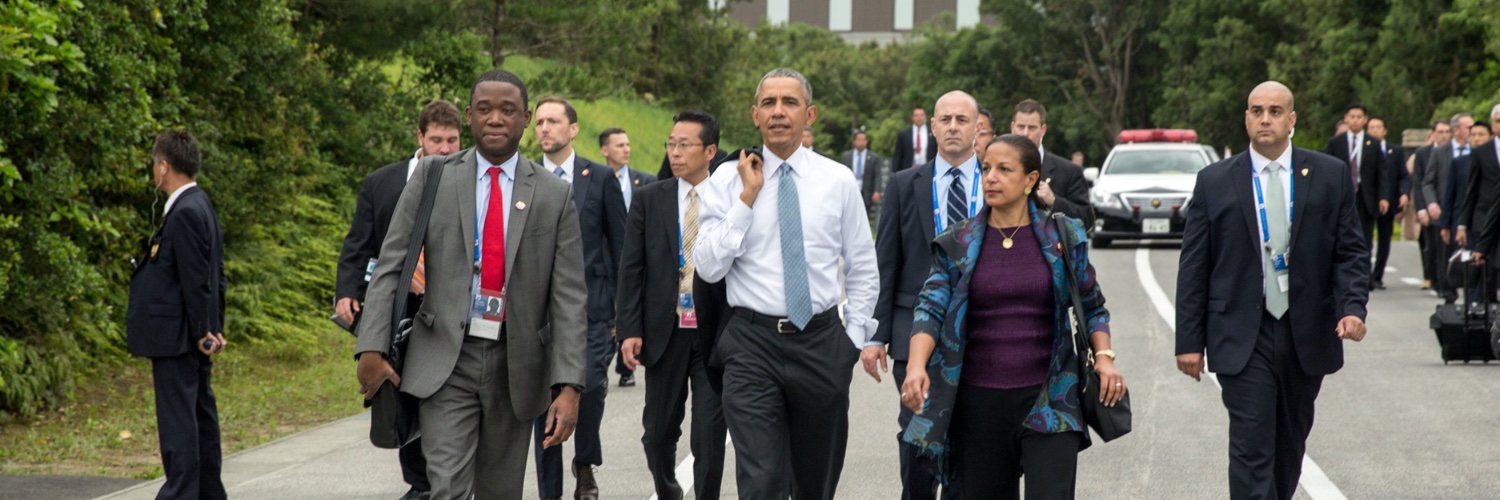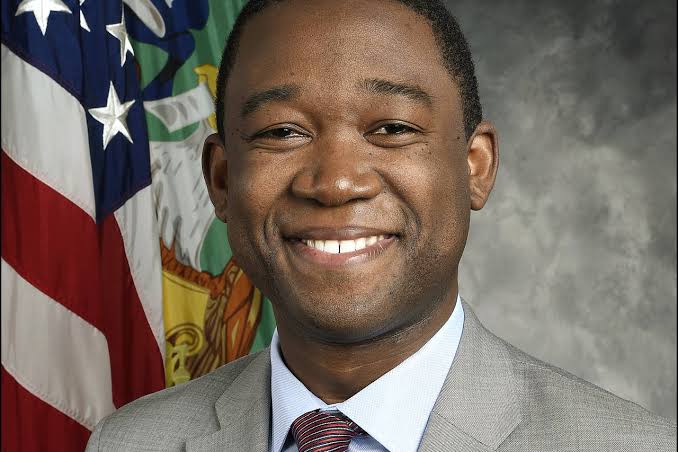WASHINGTON — Speaking at a Washington think tank in the summer of 2016, Adewale Adeyemo, President Barack Obama’s international economics adviser, warned about the perils of protectionism, explained how a growing Chinese economy was good for the world and talked up the Trans-Pacific Partnership, a trade deal he helped negotiate that Democrats ultimately rejected.
Four years later, such talk might sound out of touch with a Democratic Party that has become even more hawkish on China and increasingly wary of sprawling international trade deals. But that was not a concern for President-elect Joseph R. Biden Jr., who this week tapped Mr. Adeyemo to be deputy Treasury secretary, solidifying his team with another stalwart veteran of the Obama administration who would bring center-left economic ideas, deep experience and diversity to Mr. Biden’s top ranks.
Like many of Mr. Biden’s hires so far, Mr. Adeyemo, who goes by Wally, brings a mainstream policy perspective with a background that breaks barriers. Mr. Adeyemo would be part of a history-making duo at Treasury: He would be the first Black deputy at the Treasury, serving with the first female secretary, Janet L. Yellen.
And like some of Mr. Biden’s picks, the selection of Mr. Adeyemo is coming under scrutiny from the left over his private-sector work. In 2017, after the Trump administration took over, Mr. Adeyemo went to work for BlackRock, the world’s largest asset manager, as a senior adviser and interim chief of staff to Larry Fink, its chief executive. He left last year to become president of the Obama Foundation, where he managed day-to-day operations and carried out its strategic plan.
As he was introduced by Mr. Biden on Tuesday, Mr. Adeyemo talked about his desire to reduce inequality in the United States and increase the fortunes of the middle class. He described his roots growing up in a state that was hit hard by the 2008 financial crisis.
“In California’s Inland Empire, where I had grown up in a working-class neighborhood, the Great Recession hit us hard,” he said. “We were one of the foreclosure capitals of the United States. The pain of this was real for me.”
Mr. Adeyemo attended the University of California, Berkeley, where he was the president of the students’ association, and went on to get a law degree from Yale. His interest in policy percolating, he worked on the presidential campaigns of John Kerry, John Edwards and Mr. Obama.
Mr. Adeyemo joined the Treasury Department in 2009, working as deputy executive secretary to Secretary Timothy F. Geithner. Just over a year later, he was dispatched to the Consumer Financial Protection Bureau to help get the new agency up and running. There, he worked as chief of staff for Elizabeth Warren, now a senator from Massachusetts, who had come up with the idea for the consumer bureau and was picked by Mr. Obama to oversee the agency’s establishment.
The ability to toggle between the likes of Mr. Geithner and Ms. Warren was an early sign of Mr. Adeyemo’s knack for straddling the moderate and progressive wings of the Democratic Party’s policymaking machine. At his 2015 confirmation hearing to be the Treasury’s assistant secretary for international markets and development, Ms. Warren offered effusive praise.
“He remembers who he grew up with, and he tries every day to make this a better country,” said Ms. Warren, who became one of the most prominent progressives within the Democratic Party. A spokeswoman said Ms. Warren would support Mr. Adeyemo’s nomination as deputy secretary.
Mr. Adeyemo ultimately became deputy chief of staff at the Treasury, serving under Jacob J. Lew. In that role, he was immersed in many issues including sanctions and international trade. During the negotiations over the 12-country Trans-Pacific Partnership, Mr. Adeyemo was focused on brokering a deal over currency provisions in the agreement’s foreign exchange chapter.
Mr. Lew recalled Mr. Adeyemo’s flying across the world from Asia to Latin America and engaging in economic shuttle diplomacy to broker an agreement that would create greater transparency and enforcement of foreign exchange policy in the deal.
“He put together an approach that frankly has withstood the test of time, even though TPP has not had U.S. participation,” Mr. Lew said in an interview. “It became the model of how currency issues were dealt with in subsequent trade agreements.”
In 2015, Mr. Obama recruited Mr. Adeyemo to the White House to be his international economic adviser on the National Security Council. He represented the president at the Group of 20 and Group of 7 summits and steered the international economic policy agenda across government agencies.
The soft-spoken and deliberate Mr. Adeyemo’s approach will provide a stark contrast to the Trump administration’s combative tone in economic diplomacy. At the 2016 event sponsored by the Center for Strategic and International Studies, Mr. Adeyemo described the importance of encouraging China to liberalize its markets by making the case that doing so was in its own economic interests — and in the interests of the United States.

Infront: Adewale Adeyemo, Barack Obama, and Susan Rice
“A growing Chinese economy is an economy where U.S. companies can sell goods and services,” he said. “And a growing Chinese economy is something that will help boost global growth.”
That multilateral approach to dealing with China could be a complication for Mr. Adeyemo at his confirmation hearing, as Republicans have become accustomed to Mr. Trump’s confrontational stance.
And Mr. Adeyemo’s work at BlackRock will probably raise questions from some Democrats, as progressives have already expressed their displeasure.
Robert Kuttner, founder of The American Prospect, a progressive publication, warned this week that BlackRock could stand to gain if Mr. Adeyemo got the No. 2 job at the Treasury, saying he could work to prevent tougher regulatory oversight of the asset manager.
Matt Stoller, the director of research at the American Economic Liberties Project, a left-leaning group that targets corporate power, suggested that BlackRock worked to implant officials that would do its bidding inside the federal government.
“BlackRock needs to be broken up and regulated,” Mr. Stoller said. “BlackRock C.E.O. Larry Fink knows this, so he’s been storing hack Democrats on ice so they can go into the Biden administration and make sure that doesn’t happen.”
A BlackRock spokesman did not respond to a request for comment.
A Biden transition team aide said Mr. Adeyemo, who was hired to establish BlackRock’s internal think tank, did not have any business responsibility for or oversight of its investments or policy decisions. The aide said the experience also deepened Mr. Adeyemo’s understanding of financial markets and the role that firms like BlackRock play in creating wealth for the middle class.
David S. Cohen, the Treasury’s under secretary for terrorism and financial intelligence during the Obama administration, said Mr. Adeyemo’s familiarity with the inner workings of the Treasury and experience with domestic policy, international economics and national security would make him a strong partner for Ms. Yellen, who is an academic economist and former central banker.
“In some respects, he’s a perfect complement to Yellen at Treasury,” Mr. Cohen said.
Source: The New York Times



Comment here
You must be logged in to post a comment.